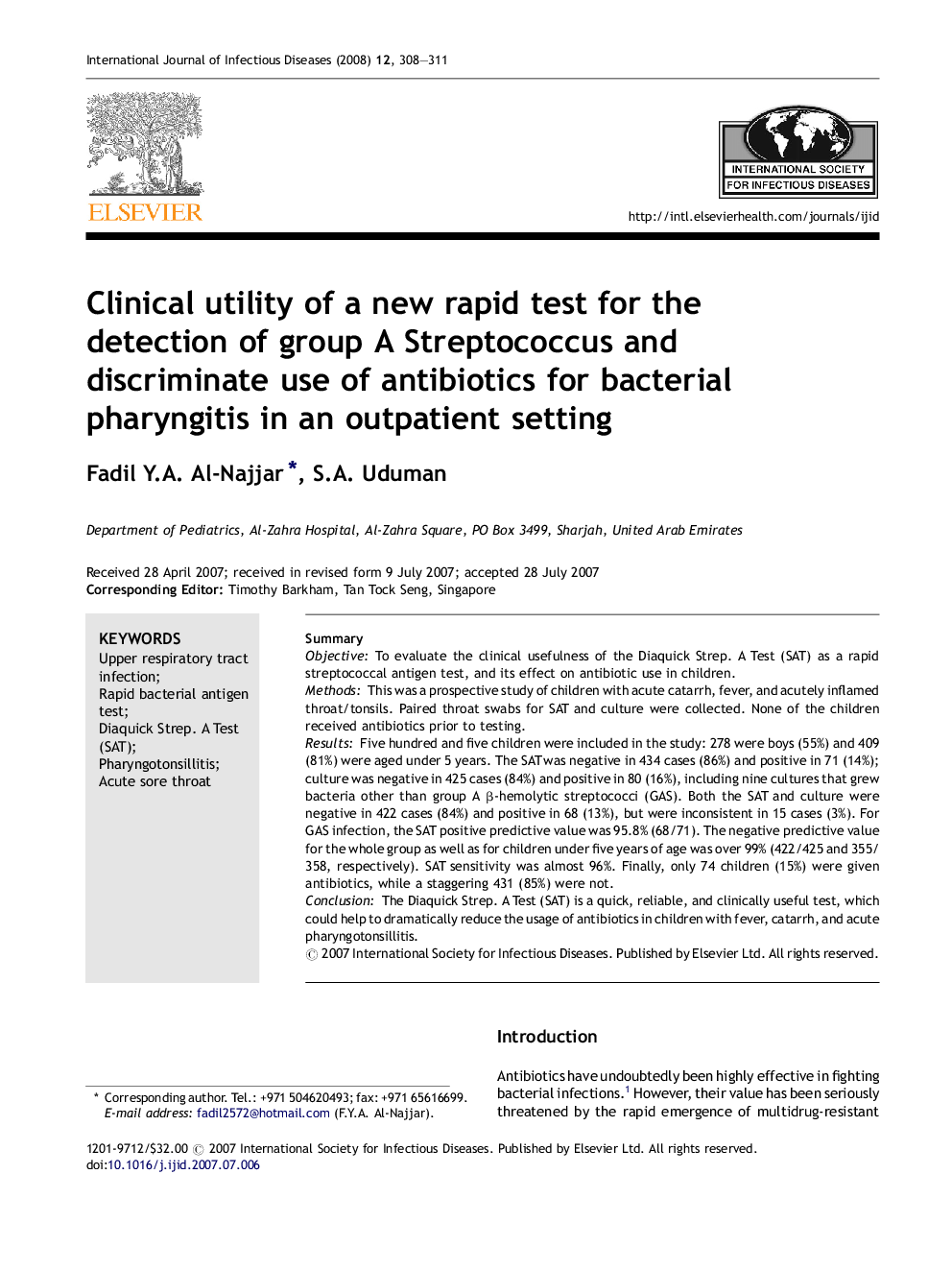| Article ID | Journal | Published Year | Pages | File Type |
|---|---|---|---|---|
| 3364730 | International Journal of Infectious Diseases | 2008 | 4 Pages |
SummaryObjectiveTo evaluate the clinical usefulness of the Diaquick Strep. A Test (SAT) as a rapid streptococcal antigen test, and its effect on antibiotic use in children.MethodsThis was a prospective study of children with acute catarrh, fever, and acutely inflamed throat/tonsils. Paired throat swabs for SAT and culture were collected. None of the children received antibiotics prior to testing.ResultsFive hundred and five children were included in the study: 278 were boys (55%) and 409 (81%) were aged under 5 years. The SAT was negative in 434 cases (86%) and positive in 71 (14%); culture was negative in 425 cases (84%) and positive in 80 (16%), including nine cultures that grew bacteria other than group A β-hemolytic streptococci (GAS). Both the SAT and culture were negative in 422 cases (84%) and positive in 68 (13%), but were inconsistent in 15 cases (3%). For GAS infection, the SAT positive predictive value was 95.8% (68/71). The negative predictive value for the whole group as well as for children under five years of age was over 99% (422/425 and 355/358, respectively). SAT sensitivity was almost 96%. Finally, only 74 children (15%) were given antibiotics, while a staggering 431 (85%) were not.ConclusionThe Diaquick Strep. A Test (SAT) is a quick, reliable, and clinically useful test, which could help to dramatically reduce the usage of antibiotics in children with fever, catarrh, and acute pharyngotonsillitis.
